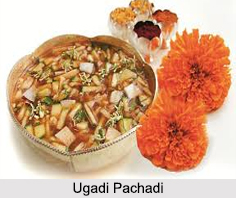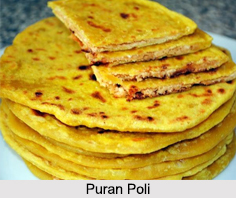 Observed on the first day of the Hindu calendar month of Chaitra, Ugadi also known as Yugadi marks the beginning of the Kannada New Year. The festival is observed in the South Indian states of Andhra Pradesh, Karnataka and Telangana.
Observed on the first day of the Hindu calendar month of Chaitra, Ugadi also known as Yugadi marks the beginning of the Kannada New Year. The festival is observed in the South Indian states of Andhra Pradesh, Karnataka and Telangana.
Etymology of Ugadi
Following the lunar calendar of South India, the celebration of Ugadi has been an important and historic festival of the Hindus and was first announced by Gautamiputra Satakarni, a ruler of the Satavahana Empire. The name Ugadi or Yugadi is an amalgamation of 2 Sanskrit words, "Yuga" meaning age and "Adi" meaning beginning, which roughly translates to the beginning of a new age.
Practises for Ugadi
On the day of the festival, households are cleaned and people buy new clothes and exchange gifts among themselves. The entrances of the houses are cleaned with water and cow dung paste and decorated with fresh mango leaves called toranalu. Mango leaves and coconuts are considered auspicious in the Hindu tradition, and they are used on Ugadi. There are also colourful patterns known as kolamullas drawn on the floor.
 Special foods are prepared like pachadi or bevu bella, which is a notable festive food that combines all flavours of sweet, sour, salty and bitter. The dish is made from a mixture of neem flowers or buds, tamarind, chilli powder, unripe mango, salt, and jaggery. It is the first dish to be had on the Ugadi day. According to the Telugu and Kannada Hindu traditions, the dish of pachadi is a symbolic reminder that one must expect all flavours of experiences in the coming New Year and make the most of them. In the states of Andhra Pradesh and Telangana, a special dish called Bobbattu or Puran Poli is prepared which is a sweet flatbread stuffed with a gram- jaggery paste and is eaten with the pachadi.
Special foods are prepared like pachadi or bevu bella, which is a notable festive food that combines all flavours of sweet, sour, salty and bitter. The dish is made from a mixture of neem flowers or buds, tamarind, chilli powder, unripe mango, salt, and jaggery. It is the first dish to be had on the Ugadi day. According to the Telugu and Kannada Hindu traditions, the dish of pachadi is a symbolic reminder that one must expect all flavours of experiences in the coming New Year and make the most of them. In the states of Andhra Pradesh and Telangana, a special dish called Bobbattu or Puran Poli is prepared which is a sweet flatbread stuffed with a gram- jaggery paste and is eaten with the pachadi.
Ugadi in Different States
The annual festival of Ugadi is related to some other regional Hindu New Year"s day. In the state of Maharashtra, Hindus observe this same festival on the same day as Gudi Padwa. The Sindhis celebrate the same day as Cheti Chand and the Manipuris celebrate as Sajibu Nongma Panba.



















